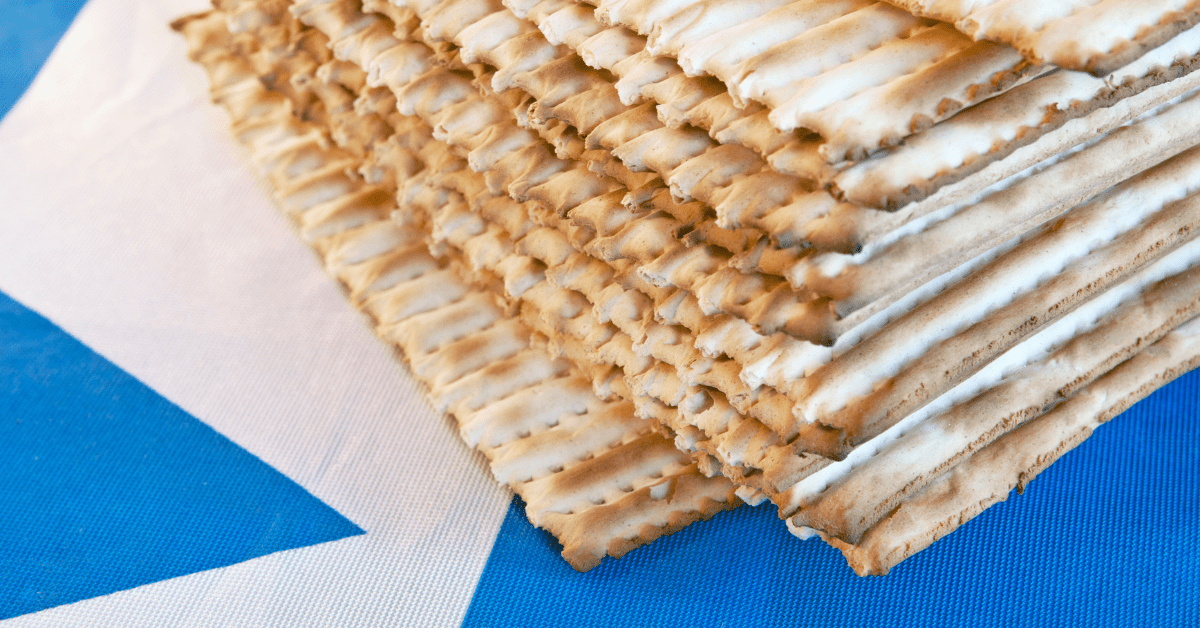Unleavened bread is mentioned numerous times throughout the Bible and has great significance. It is most commonly associated with the Jewish holiday of Passover when the Israelites were instructed by God to eat unleavened bread for seven days. The eating of unleavened bread during Passover commemorates the haste in which the Israelites left Egypt and serves as a reminder that they are to live a life free from sin.
What is Unleavened Bread?
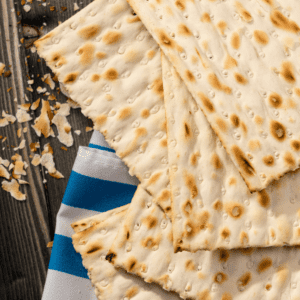
Unleavened bread is a type of bread made without yeast or any leavening agents, resulting in a dense and flat texture. It is commonly used in religious and cultural traditions, such as the Jewish holiday of Passover. The absence of leavening gives unleavened bread a distinct taste and symbolic significance in various culinary practices around the world.
What does Leaven mean biblically?
In the Bible, leaven is a metaphor for sin. Just as leavened bread puffs up and is no longer flat, sin causes us to become proud and self-righteous. We must be careful not to let sin into our lives, or it will destroy us spiritually.
The importance of unleavened bread
Unleavened bread is a significant part of many religious traditions, but it holds a particularly important place in Christianity. The Bible tells the story of the Exodus when the Israelites were led out of slavery in Egypt by Moses. They had to leave quickly and didn’t have time to let their bread rise, so they baked it without yeast. This bread came to symbolize freedom from bondage.
Christians also see unleavened bread as a symbol of Christ’s sacrifice. Christ was crucified on Passover when Jews traditionally eat unleavened bread. For Christians, the bread represents Christ’s body, which was broken for us. Just as the bread is simple and plain, Christ’s sacrifice was humble and unassuming.
What the Bible Says about Unleavened Bread
The Bible has a lot to say about unleavened bread. In Exodus 12:15, God tells Moses to tell the people of Israel to eat unleavened bread for seven days. Leviticus 23:6 says that on the first day of the Feast of Unleavened Bread, you are to eat unleavened bread. Deuteronomy 16:3 says that you are to eat unleavened bread for seven days. The Bible also says in 1 Corinthians 5:8 that we are to keep the Feast of Unleavened Bread with the unleavened bread of sincerity and truth.
For seven days you are to eat bread made without yeast. On the first day remove the yeast from your houses, for whoever eats anything with yeast in it from the first day through the seventh must be cut off from Israel. Exodus 12:15
On the fifteenth day of that month the Lord’s Festival of Unleavened Bread begins; for seven days you must eat bread made without yeast. Leviticus 23:6
Do not eat it with bread made with yeast, but for seven days eat unleavened bread, the bread of affliction, because you left Egypt in haste—so that all the days of your life you may remember the time of your departure from Egypt. Deuteronomy 16:3
Therefore let us keep the Festival, not with the old bread leavened with malice and wickedness, but with the unleavened bread of sincerity and truth. 1 Corinthians 5:8
The Feast of Unleavened Bread or Passover
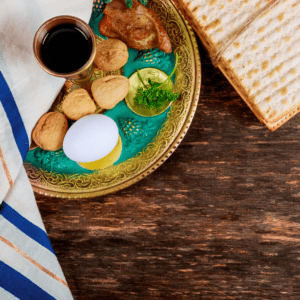
The instructions for the first Passover are given in Exodus 12:15-20. On the tenth day of the first month, each family is to take a lamb or kid, without blemish, and keep it until the fourteenth day. On the evening of the fourteenth day, they are to kill the lamb, take some of its blood, and put it on the two doorposts and lintel of their houses. They are to roast the lamb with fire and eat it with unleavened bread and bitter herbs.
The Last Supper
The Last Supper was the final meal that Jesus shared with his disciples before his crucifixion. The account of the Last Supper is found in Matthew 26:17-30, Mark 14:12-26, and Luke 22:7-23. In all three accounts, Jesus predicts his betrayal by one of his disciples and institutes the Eucharist. Judas Iscariot, the disciple who betrayed Jesus, leaves supper early. The remainder of the disciples then goes to the Mount of Olives as Jesus had instructed them to do.
Communion
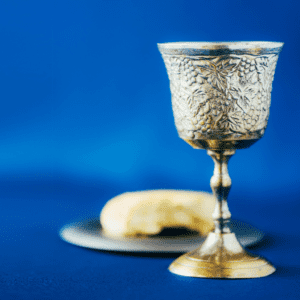
Unleavened bread, also known as Lumos in Greek and matzah in Hebrew, has been a part of the Christian Eucharist or Communion since the very beginning. The early Church Fathers debate whether or not leavened bread was actually used during the Last Supper, but it is clear that by the fourth century, unleavened bread had become the norm. There are many theories as to why this change may have occurred, but ultimately it doesn’t matter what kind of bread was used at the first Communion. What matters is that Christians today can still partake in this holy sacrament using unleavened bread.
The symbolism of unleavened bread
Unleavened bread is a significant symbol in many religions, including Christianity, Judaism, and Islam. For Christians, unleavened bread is a reminder of the night before Jesus was crucified when his disciples ate their final meal with him. This meal, known as the Last Supper, was eaten in haste as the disciples prepared to flee from the approaching Romans. The Roman soldiers eventually captured Jesus and crucified him the following day.
For Jews, unleavened bread is a reminder of their deliverance from slavery in Egypt. According to the book of Exodus in the Bible, the Israelites were instructed by God to bake their bread without yeast before leaving Egypt. This ensured that they would not have time to let their bread rise and would instead be forced to eat it quickly.
What are the Health Benefits of Unleavened Bread?

There are many health benefits to eating unleavened bread. This type of bread is made without yeast, which makes it easier to digest and helps prevent bloating. Unleavened bread is also a good source of fiber and protein, both of which are important for a healthy diet. Additionally, this type of bread does not contain any sugar, which makes it a good choice for people with diabetes or those who are trying to lose weight.
There are many health benefits of unleavened bread, especially for those who are gluten-sensitive or have celiac disease.
Unleavened bread is made without yeast, so it doesn’t contain the same amount of gluten as regular bread. This makes it a good option for people who can’t eat gluten or who have trouble digesting it.
There are also some studies that suggest that unleavened bread may be easier to digest than other types of bread. This is because the process of fermentation breaks down some of the gluten proteins, making them easier to digest.
So if you’re looking for a healthier alternative to regular bread, try unleavened bread. It may be better for your digestion and it’s still delicious!
What is Gluten?
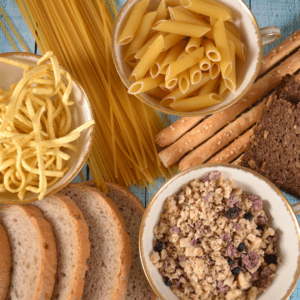
Gluten is a type of protein found in wheat, rye, and barley. It’s what gives bread its chewy texture and helps to trap air bubbles, which makes the bread rise. Gluten is found in foods like pasta, cereal, and crackers. For people with celiac disease, ingesting gluten can damage the lining of the small intestine, making it difficult to absorb nutrients from food. There is no cure for celiac disease, but the only treatment is to follow a strict gluten-free diet.
List of Unleavened Bread
Unleavened bread is a type of bread that does not contain any leavening agent. This means that the dough does not rise and is therefore much thinner than other types of bread. Unleavened bread is popular in many cuisines, especially those from the Middle East and North Africa.
There are many different types of unleavened bread, but some of the most common are pita, naan, and matzo. Pita is a round, flatbread that is used as a sandwich wrap or to scoop up dips and sauces. Naan is a soft, leavened flatbread that originated in India. It is served with curries or other rich dishes. Matzo is an unleavened cracker that is eaten during the Jewish holiday of Passover.
Unleavened Bread Recipe
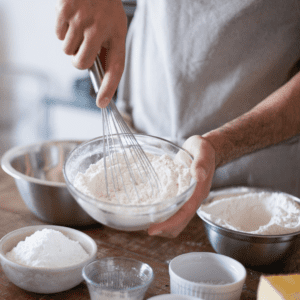
While there are multiple unleavened bread recipes found online, this is the simplest one.
Ingredients:
- 1.5-cups of all-purpose flour or whole wheat flour
- 1-teaspoon of salt
- 1-Tablespoon of olive oil
- warm water as needed (room temperature)
Instructions:
- Preheat your oven to 350 degrees F (175 degrees C). Grease a loaf pan with olive oil.
- Sift together the dry ingredients (flour and salt) in a large bowl. Add the oil. Stir in enough warm water to make a soft dough.
- Turn out the dough onto a lightly floured surface and knead until it is smooth about 10 minutes. Place the dough in the prepared loaf pan and press down evenly.
- Bake in the preheated oven for 50 minutes, or until golden brown. Let cool in the loaf pan for 10 minutes before slicing and serving. Enjoy!
Unleavened Bread in the Bible – Conclusion
Unleavened bread was a staple in biblical times and continues to be eaten today. It is a simple bread made without yeast or any other leavening agent. The Bible mentions unleavened bread in many passages, including the story of the Exodus, when the Israelites were required to eat it while they were traveling. Today, Christians eat unleavened bread during Holy Week, as a reminder of the week that Jesus spent in Jerusalem before his crucifixion.

